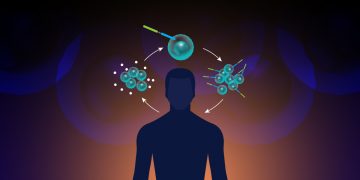
Cancer in the Age of Long Noncoding RNA Discovery
Cancer is one of the leading causes of death in the world and, due to an aging population, more and more people are diagnosed with cancer every year. Researchers are actively searching for treatment options in the form of potential biomarkers. Long noncoding RNAs (lncRNAs) have piqued the interest of researchers as a relatively new source of therapeutics. Learn more about lncRNAs and see how they can be used in cancer diagnosis and intervention.

Biosimilars: Providing More Treatment Options
It is hoped that the development of biosimilars will lead to more accessible and cost-effective treatment options. Here we explore the current opportunities for biosimilars in rheumatoid arthritis and discuss the opportunities and concerns tied to their use.

What’s New in U.S. Biosimilar-Land?
Biosimilars are gaining in popularity and estimates predict that the U.S. could save between $40–250 billion in healthcare costs over the next decade by switching from biologics to biosimilars. See how biosimilars have gained in popularity recently, the challenges the U.S. faces in developing them, and what the future holds.

Year in Review: What We Learned in 2017
In 2017, Bioradiations published a wide variety of general interest articles, tips, podcasts, and application notes. Revisit the technological advancements and growth in technology that researchers experienced this year. Here are the highlights of what we learned this year.

Top Ten Videos of 2017
Explore the most watched Bio-Rad videos in 2017. From understanding CRISPR gene editing to generating better qPCR data to selecting antibodies for fluorescent western blotting, these videos highlight how we continually strive to help our customers do better science.

Top Five Podcasts of 2017
2017 saw the launch of Bioradiations’ first-ever podcast! Here you can listen to the top five podcasts we published this year, and learn about a variety of topics from CRISPR gene editing to what biomarkers and biosimilars are.

Cell Sorting and Its Significance in Stem Cell Research
Stem cells possess the remarkable potential to self-renew and to differentiate into many different types of cells. Due to their unique ability to regenerate, they are being used in regenerative medicine and offer great hope for treating diseases such as diabetes and heart disease. However, since stem cells represent a rare population of cells, they are not always easy to study. See how the simplicity, efficiency, and flexibility of cell sorting is making it possible to isolate pure populations of stem cells for downstream analyses.

Advances in Immunotherapy for Cancer
Cancer kills eight million people annually worldwide; this number will increase to 13 million by 2020. Lung, breast, colorectal, and prostate cancer are the four most commonly diagnosed cancers. Meaningful developments in immuno-oncology, or cancer immunotherapy, treatments are important now more than ever. Learn about some of the newer immunotherapies, including BiTE Antibodies and vaccines, and the companies developing them.

Apolipoproteins as Biomarkers in Heart Disease and Beyond
Apolipoproteins bind to lipids to form lipoproteins, which transport lipids throughout the lymphatic and circulatory systems. In addition to cardiovascular disease, apolipoproteins are now being linked to other diseases such as cancer, autoimmunity, and neurodegeneration. Learn more about the different types of apolipoproteins and see how they serve as biomarkers for these diseases.

Immunotherapy: The Next Frontier for Cancer
Immunotherapy is not a new concept; it has, in fact, been around for more than 125 years. However, recent scientific advances have led to the emergence and rapid evolution of the field, especially immuno-oncology. Get an introduction to this exciting emerging field, learn about the different personalized therapies currently available, and see what the future of cancer immunotherapy looks like.
